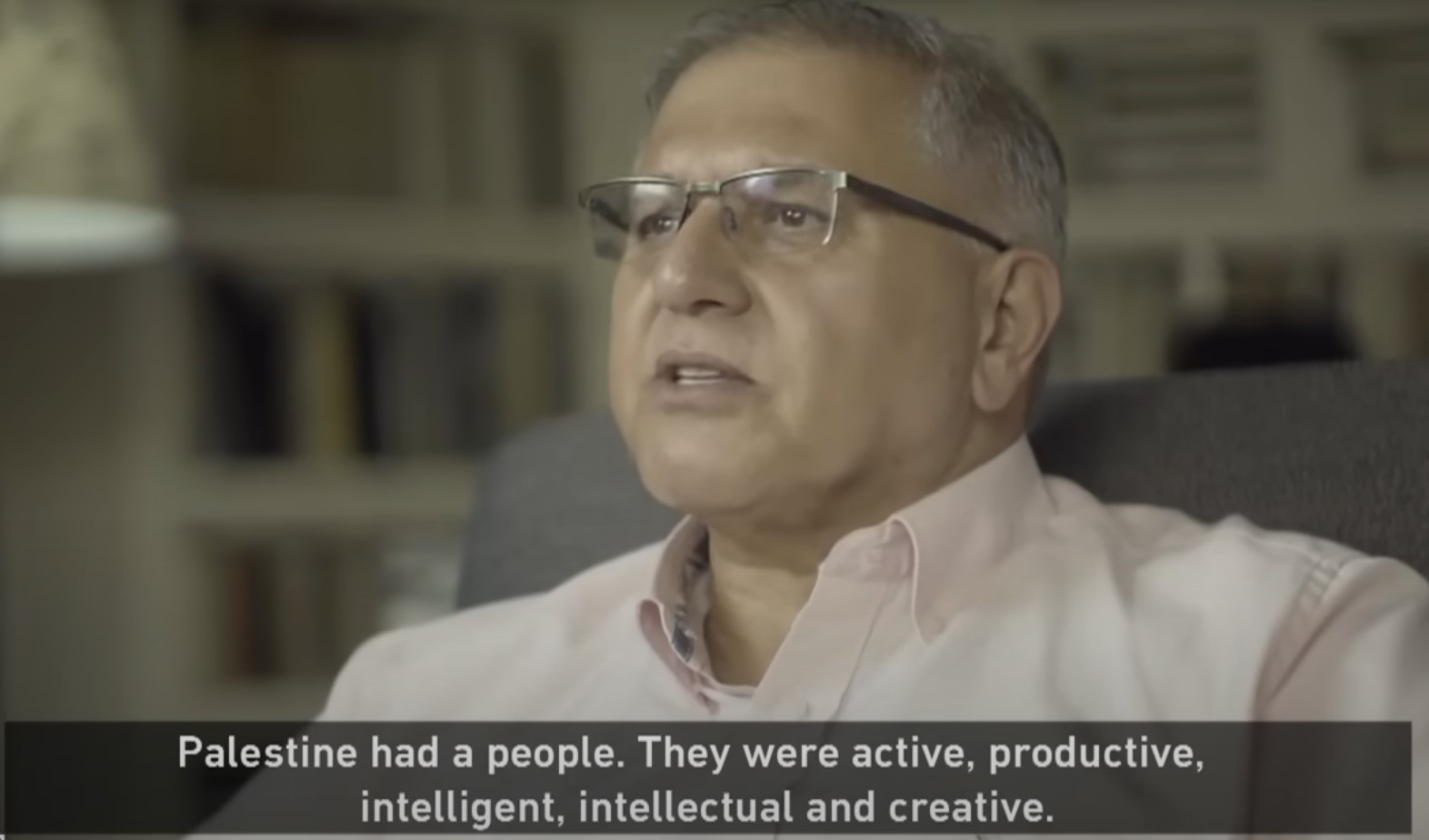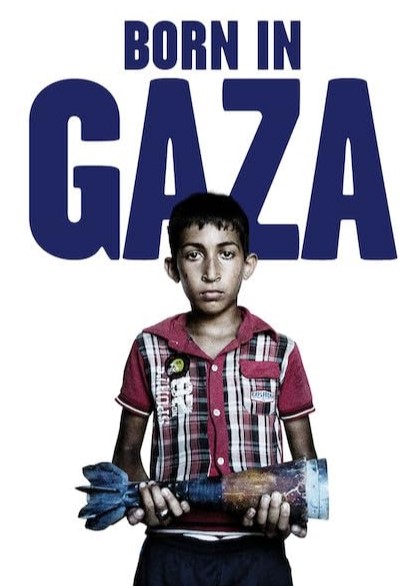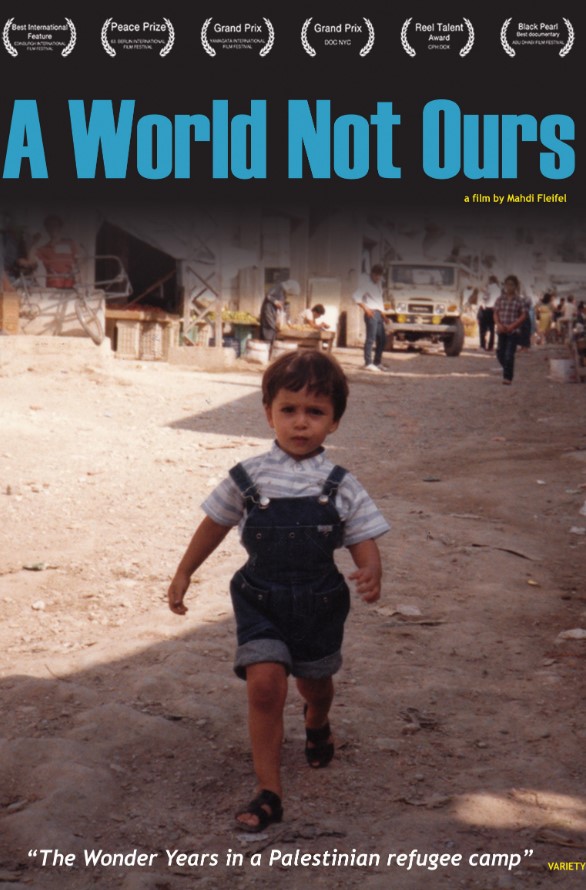Compelling Palestinian documentaries and films on Netflix and YouTube
Brunei Darussalam, in common with numerous other nations, has remained a steadfast advocate for the Palestinian cause.
Over the recent weeks, we’ve borne witness to a series of horrifying events, where the Gaza Strip has been subjected to relentless daily airstrikes by the apartheid state.
These distressing scenes have unfolded right before our eyes, inundating every social media platform with an unceasing barrage of news updates.
A growing number of individuals who previously lacked awareness on the issue are now increasingly eager to expand their knowledge and express solidarity with the Palestinians’ rightful aspiration for a homeland free from oppression.
People around the globe remain consistently engaged with those on the front lines, whether they are journalists, content creators or others, fervently hoping for their safety and well-being.
While perusing Threads, I stumbled upon a user’s post about a Netflix documentary titled Born in Gaza.
“Let us make sure to watch it or it will be taken down,” the user, @a9ar_, said. “Please help it get pushed up the popularity and show up in the top 10 most watched. This is our voice.”
As a documentary enthusiast with a deep interest in stories of displaced communities, I promptly searched for this documentary and explored others shedding light on the nation and its displaced populace.
So here are some Palestinian documentaries or films you can watch on Netflix and YouTube.
PALESTINE 1920: THE OTHER SIDE OF THE PALESTINIAN STORY
In the 1800s, Christian writers described the relationship between Palestine and the Jewish people as “A land without a people, and a people without a land.” Much of the 20th Century history of the Middle East has been told from this perspective.
Yet, this documentary from Al Jazeera Arabic which can be found on YouTube takes a different approach, offering a fresh perspective on Palestine.
A film by Ashraf Mashharawi, the documentary delves into historical accounts and testimonies while presenting archival documents that reveal Palestine as a thriving region within Greater Syria and the Ottoman Empire at the beginning of the 20th Century.

The evidence indicates that its cities were experiencing economic growth, developing infrastructure and nurturing a burgeoning culture, preparing it to face the challenges of the years ahead.
Nonetheless, the political implications of the Balfour Declaration, the San Remo Conference and the British Mandate triggered a series of events that deeply impacted this vibrant, emerging society, ultimately leading to the events of 1948 and beyond.
This documentary sheds light on a lesser-known aspect of the Palestinian narrative, one that many around the world have been unaware of until now.
Education is the key to unlocking the doors of knowledge and understanding in any subject matter. It empowers individuals to explore, question, and comprehend the intricacies of the world around them.
When we invest time and effort to gain a deeper understanding of a particular subject matter, whether it’s a culture, a historical event, or a social issue, we not only expand our knowledge but also our capacity for empathy.
BORN IN GAZA
Written and directed by Hernán Zin, a filmmaker, producer, writer and war reporter of Italian-Argentinian heritage.
His extensive career spans over 80 countries, with a diverse portfolio of over 35 films and series currently available on various streaming platforms.

The Spanish documentary, Born in Gaza, vividly portrays the ongoing tragedy of the besieged Gaza Strip, where the relentless Israeli occupation’s aggression is a grim reality.
The director’s motivation to create the documentary stemmed from the harrowing images of an airstrike on a Gaza beach, tragically claiming the lives of four children from the same family (Mohamed, Ismail, Zakariya, and Ahed) who were playing football.
Such incidents serve as stark examples of the tragic “side effects” of the “most modern army in the world”, one that struggles to differentiate between children and combatants.
Through the innocent eyes of 10 Gaza’s children, the film poignantly narrates the horrors of war and its profound impact on every aspect of life in the Strip, from its people to its very foundations.
These children courageously unveil the stark reality of their daily existence in the aftermath of the 2014 bombings in Gaza, shedding light on the resilience that arises from the depths of adversity.
The film starts off with the waves splashing, you see young boys by the beachside.
The focus then moved to the first child, Mohamed, who is riding on a horse-drawn cart collecting used plastic items and debris to sell.
“The situation is really complicated. We have a war every two years and we cannot stand it. People close to us die very often,” he said.
Another boy named Mahmud, hailing from a family that owned an extensive 75-acre farmland, has endured ongoing bombardment and harassment on their property. In the documentary, he passionately conveyed, “We don’t have missiles or tanks. We grow vegetables, not bombs.”
The documentary also introduces us to a cast of survivors, each with their own story of resilience.
Among them are Sondos, a young girl who carries the physical scars of a liver wound, and Rajaf, the son of an ambulance driver who tragically lost his life while saving others.
There was also Udaai, whose father used to own a soft drink factory before it was bombed, Malak, a courageous young woman, who recounted her experience of witnessing the bombing of a United Nations (UN) girls’ school in the Jabalia refugee camp where her brother and cousin were killed.
There was also Hamada, one of the four boys who miraculously survived the Gaza beach attack, and Bisan, a little girl whose parents tragically perished in a bombing, now in need of specialised eye surgery that is only available outside of Gaza.
How can one disregard the voices of these children? They harbour their own desires, dreams, and aspirations.
A WORLD NOT OURS
This is another documentary available on Netflix, which is a remarkable example of first-hand filmmaking that resonates across a broad spectrum of emotions, evoking both tears and laughter.
Directed by Mahdi Fleifel, he skilfully immerses his audience in the world of his family, friends and home, engendering a deep sense of connection as if these experiences were our own.
While the film explores universal themes, it is firmly anchored in a unique setting rarely seen in cinema: the Palestinian refugee camp of Ain El-Helweh in Lebanon.

Mahdi’s childhood years were spent in this camp during the 1980s before his family eventually settled in Denmark.
Over the years, he has diligently maintained a video diary of his visits. At the core of the film lies Mahdi’s poignant relationship with his friend, Abu Eyad.
They share a passion for World Cup football and Palestinian politics, but Mahdi possesses the freedom to come and go while Abu Eyad is bound by his circumstances.
This inequality adds depth to their friendship, making it both precious and susceptible to tension.
Mahdi’s penchant for video recording, inherited from his father, is woven into the narrative through a lively family archive.
The film is sprinkled with references to Western influences, from Michael Jackson to Rambo to Neil Young, and its soundtrack is adorned with nostalgic music reminiscent of a Woody Allen film. For viewers, these familiar cultural touchstones, coupled with Mahdi’s witty English narration, serve as a bridge into an otherwise foreign world.
Ain El-Helweh, which translates to “Sweet Spring,” ironically contrasts with its history – hastily constructed in 1948, it now accommodates 70,000 refugees within a one-square-kilometre area.
As we listen in on Mahdi’s conversations with camp residents, we gain unfiltered insights into Palestinian grievances with their political leaders, Lebanon and Israel, and you can’t help but have a sense of understanding on why they feel the way they do.
The seven decades since Ain El-Helweh’s establishment have been marked by tumultuous history, and Mahdi’s personal journey serves as a compelling means to navigate this complex terrain.
While you may not have heard of Ain El-Helweh before, this film ensures you will never forget it. – Izah Azahari






